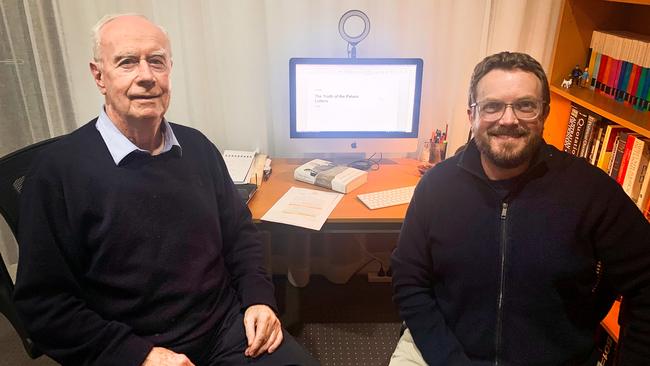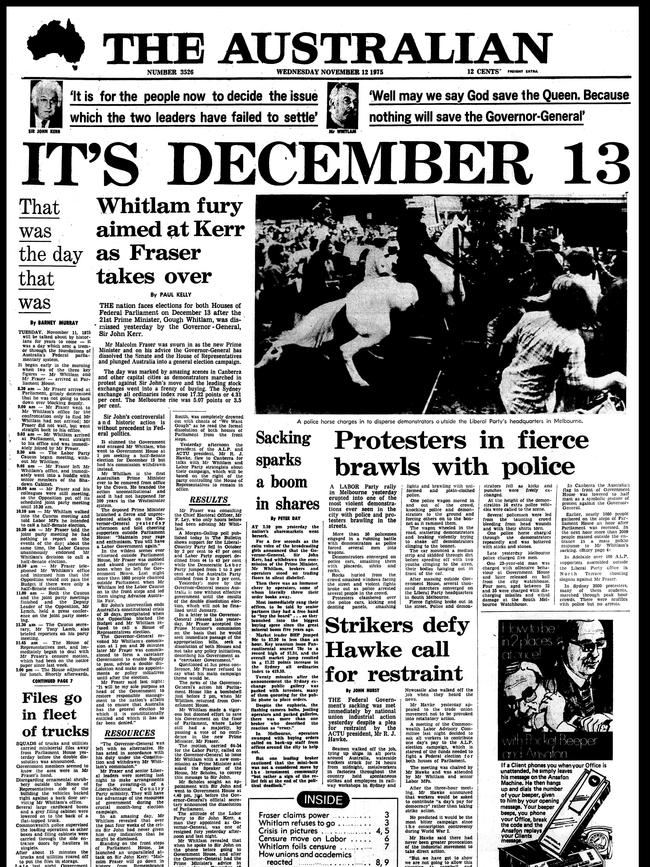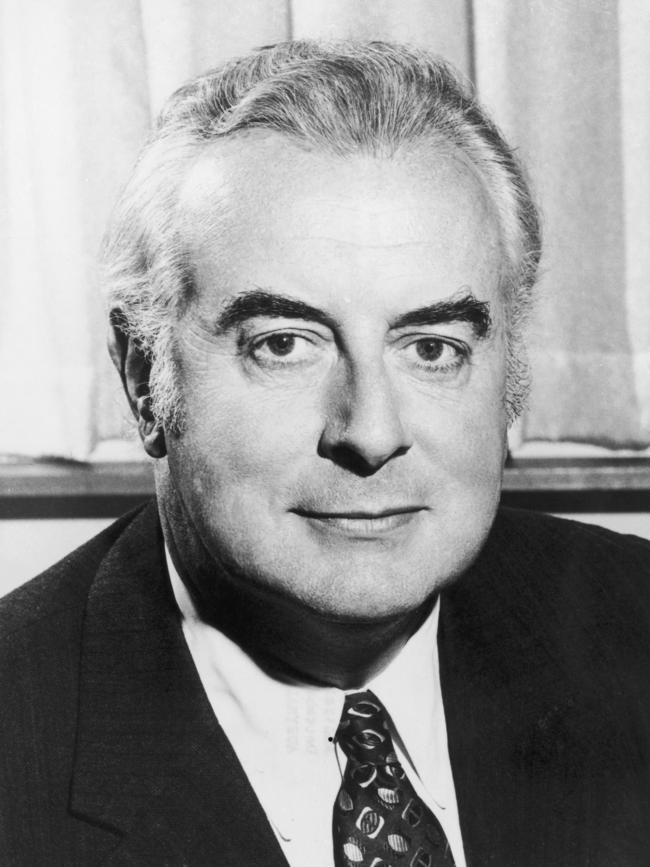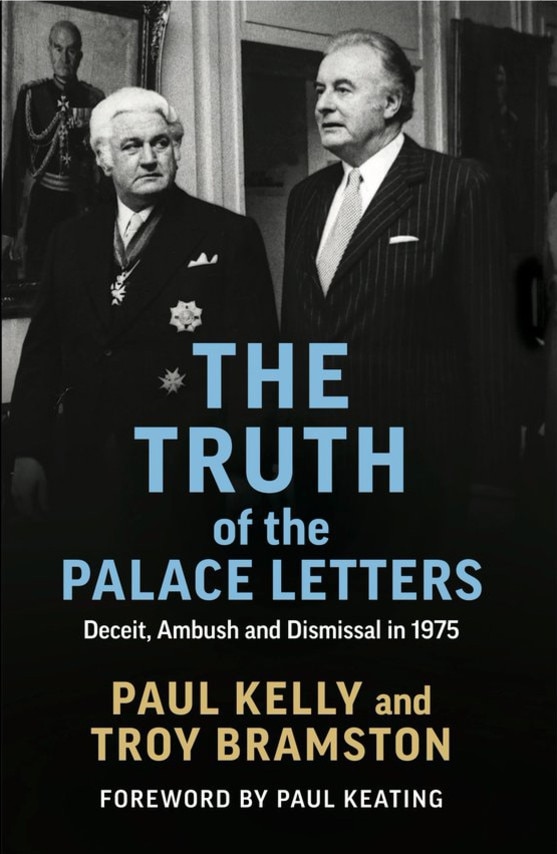Palace intrigue spans the generations at The Oz
The Australian duo has conducted fresh interviews, accessed new archival material and scrutinised the palace letters for their second book together.

When Troy Bramston wrote to Paul Kelly as a keen university student asking for a copy of the journalist’s first book on the Dismissal, his obsession with a historic event that pushed Australia’s political system to the brink was just beginning.
He had borrowed Kelly’s 1976 tome The Unmaking of Gough from the University of Sydney library but wanted a copy to own.
“In an age before Amazon or eBay when you couldn’t find second-hand books easily, I rather presumptuously wrote to Paul and asked him for a copy of the book. He wrote me a very kind letter thanking me for my interest in the Dismissal and his book and he sent me a copy,” Bramston said.
Nearly two decades on and the exchange of letters between an 18-year-old and The Australian’s then editor-in-chief has led to a genuine partnership, with the pair spending hundreds of hours together in the past eight years conducting interviews and writing.
Though the men are from different generations, the events in November 1975 have had a lifelong impact on both.


Bramston was born a few weeks after the Dismissal, while Kelly was in the thick of it, reporting at Parliament House as The Australian’s political correspondent on the day Gough Whitlam’s government was sacked by governor-general Sir John Kerr.
“The Whitlam government was an all-consuming event for a political journalist. It was filled with drama, excitement, reform and hysteria,” Kelly said.
“I admired Whitlam but I was fully aware of his fatal defects, yet I opposed both the blocking of the budget and Kerr’s dismissal of Whitlam. The consequence was I was sacked as political correspondent at the paper, though I was allowed to participate in the coverage of the 1975 election.”
Kelly had returned to The Australian by the time Bramston wrote to him in the mid-90s and thought nothing of their correspondence until they got to know each other in earnest when Bramston joined the paper.
Fast forward to July this year and the release of the palace letters after the High Court found they were commonwealth records, not private.
Like historian Jenny Hocking, who won the High Court case, Kelly and Bramston had argued for the letters to be made public.

“In my 1976 book I referred to the palace letters,” Kelly said. “I’ve always known about them and knew Kerr valued them highly. Having already written three books about the Dismissal, I was instinctively committed to working with Troy on a fourth book for me based on the letters.”
Bramston refers to reading the letters as “like opening presents on Christmas Day for Dismissal tragics like us”.
The duo has conducted fresh interviews, accessed new archival material and scrutinised the palace letters for their second book together, which Bramston promises will “surprise and shock many people”.
“We haven’t had politicians as vivid, as interesting, as compelling to watch as Gough Whitlam or Malcolm Fraser,” Bramston said.
“The competing egos, the duelling ambitions for Australia were all on display here. This is a story about political power, about getting power, about holding onto power and using power. That’s why it transcends generations.”
The Truth of the Palace Letters: Deceit, Ambush and Dismissal in 1975 will be published by Melbourne University Press on November 3.







To join the conversation, please log in. Don't have an account? Register
Join the conversation, you are commenting as Logout